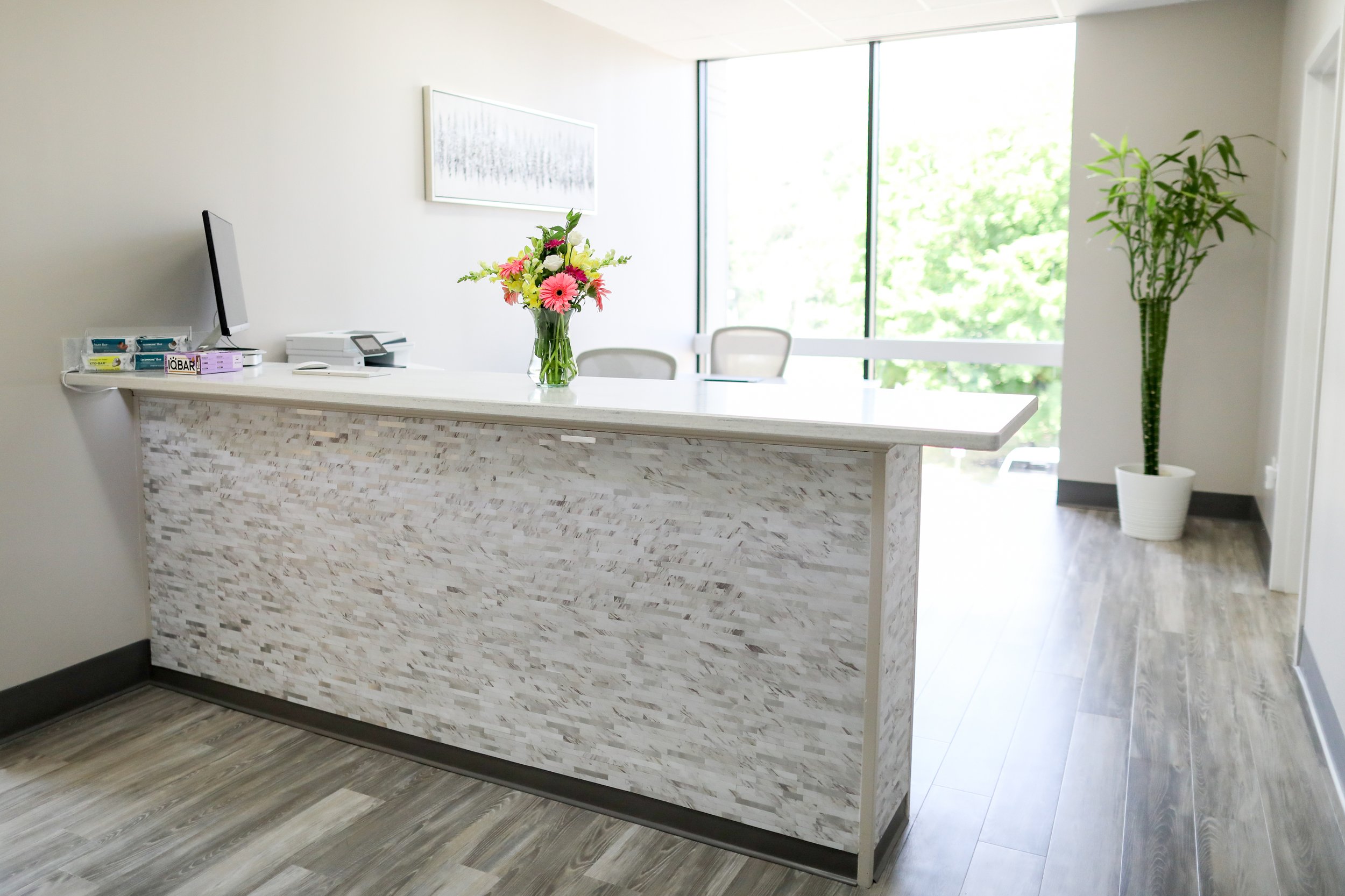Low Testosterone
Testosterone is an essential hormone contributing to optimal health and vitality. When men have low testosterone (low-T), they can benefit from testosterone replacement therapy.
We offer blood testing to assess your testosterone levels and customize a testosterone replacement plan to ease symptoms like fatigue, mood swings, weakness, and weight gain and stabilize your long-term health.
What is Low Testosterone?
Testosterone is a hormone that regulates a man’s sexual function, fertility, and mood. It also plays an essential role in developing male sex characteristics, bone mass, red blood cell production, body fat storage, and sexual and reproductive health.
Low testosterone (low-T) occurs when your body produces insufficient levels of testosterone, causing a range of symptoms that can impact your sexual, physical, and mental well-being.
We specialize in testosterone replacement therapy for adult males seeking relief from low-T symptoms.
Our team customizes a therapy plan to relieve existing symptoms and prevent complications of a hormone imbalance. They also focus on optimizing your overall health and wellness.
Symptoms of Low Testosterone
Mood swings
Persistent fatigue
Loss of muscle mass
Weakness
Unexplained weight gain
Erectile dysfunction
Decreased sex drive
Anxiety
Depression
Decreased bone density
Difficulty sleeping
These symptoms can become more common as your body produces less testosterone as you age. You might also experience low-T symptoms if you experience a testicle injury, have had a concussion, undergo radiation or other cancer treatments, or drink excessive amounts of alcohol.
Chronic diseases such as Lyme disease, Long COVID, autoimmunity, and mold toxicity can also cause low testosterone. Restoring optimal testosterone levels can be an essential part of recovery for numerous chronic diseases.
Tests to Diagnose Low Testosterone
We provide blood tests to evaluate your total testosterone, free testosterone, and estrogen levels. We also review your medical history to determine if you’re a candidate for testosterone replacement therapy. Reducing excessive estrogen levels can help enhance the benefits of testosterone.
Testing for nutrient deficiencies such as B12 and zinc while also ruling out underlying conditions such as hypothyroidism are also important aspects of comprehensive testing for patients with possible low testosterone.
Benefits of Restoring Optimal Testosterone Levels
Possible benefits of optimized testosterone include:
Energy and stamina
Exercise performance
Muscle mass
Erectile function
Libido
Mental clarity
Bone density
Reduced insulin resistance
Reduced triglycerides
Reduced cholesterol
Injury healing
Low Testosterone Treatment
When treating low-T, the goal is to rebalance your natural hormone levels with supplemental testosterone.
We offer several testosterone delivery methods, including:
Injections
Oral pills
Transdermal topicals
For patients looking to increase their own production of testosterone, professional-grade nutraceuticals and the compounded medication Enclomiphene can be considered.
Our team determines which method of testosterone replacement therapy is a good fit for you based on your health, lifestyle, goals, preferences, and the severity of your symptoms. We monitor your progress with treatment during routine follow-up visits and can recommend how long you should continue.
Other wellness services including EBOO therapy, IV therapy, HBOT, red light therapy, and peptide therapy are great options for optimizing overall health while treating for low-T.
Can Women Have Low Testosterone?
Absolutely, women can experience low testosterone. While often associated with men, testosterone is an essential hormone for women too, but in smaller amounts. It plays a crucial role in energy levels, bone health, muscle mass, sex drive, and mood. As women age, particularly around menopause, testosterone levels naturally decline. However, certain medical conditions or treatments can also contribute to low testosterone
If you're experiencing symptoms like fatigue, low libido, mood swings, or muscle weakness, it's also important for women to screen the possibility of low testosterone and explore appropriate treatment options. We generally consider ideal testosterone levels for women to be 35-60 ng/dL.
Optimal Testosterone & Estrogen Levels in Men
Average testosterone levels based on age are no longer an ideal treatment marker for optimal levels. This is because average testosterone levels in recent years have significantly decreased due to factors such as the rise of obesity, plastic byproducts, and other endocrine disruptors. In general, adult men feel best with the following optimal hormone levels regardless of age:
Total testosterone: 600 – 1200 ng/dL
Free testosterone: 15‒25 pg/mL
Estradiol: 20 – 40 pg/mL


